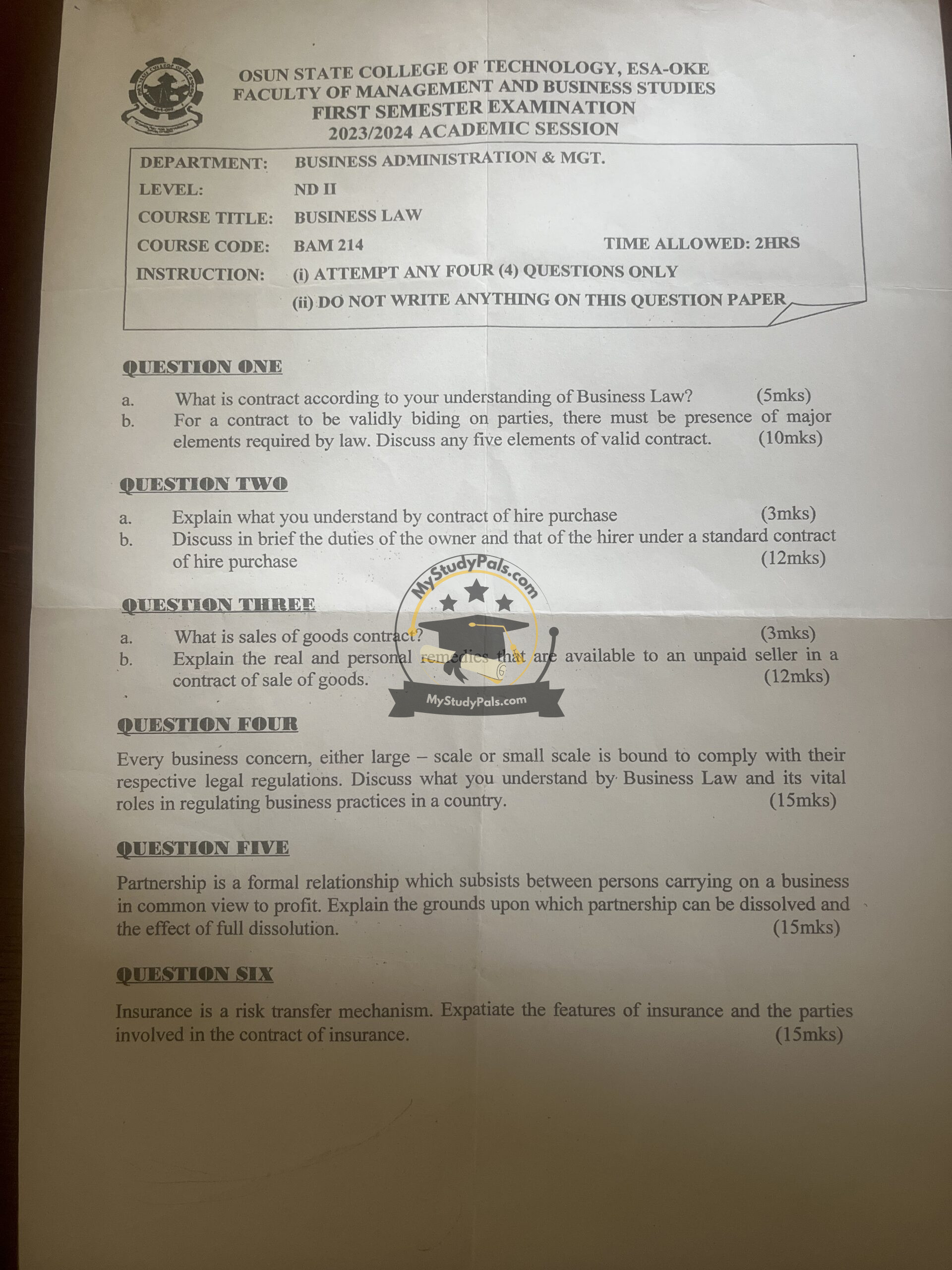ANWSER
Question 1
a. A contract, according to Business Law, is a legally binding agreement between two or more parties that creates enforceable rights and obligations. It involves an offer, acceptance, consideration, intention to create legal relations, and capacity of the parties involved.
b. Five elements of a valid contract:
- Offer and Acceptance – One party must make a clear offer, and the other must accept it.
- Intention to Create Legal Relations – The parties must intend to be legally bound.
- Consideration – Something of value must be exchanged.
- Capacity to Contract – Parties must have the legal ability to enter into a contract.
- Legality of Object – The purpose of the contract must be legal.
Question 2
a. A contract of hire purchase is an agreement in which an owner of goods allows a hirer to take possession and use the goods while making installment payments. Ownership transfers only after the final payment.
b. Duties of the owner:
- Ensure the goods are in good condition.
- Transfer ownership after the last payment.
- Not repossess the goods unless there is a breach.
Duties of the hirer:
- Make regular payments as agreed.
- Take care of the goods.
- Return the goods if they fail to meet terms of the contract.
Question 3
a. A contract for the sale of goods is a legally binding agreement where a seller transfers or agrees to transfer ownership of goods to a buyer for a price.
b. Remedies available to an unpaid seller:
- Real remedies:
- Right to withhold delivery.
- Right to stop goods in transit.
- Right to resell goods.
- Personal remedies:
- Right to sue for the price.
- Right to sue for damages.
Question 4
Business Law refers to the body of legal rules and regulations that govern business transactions and commercial activities.
Roles in regulating business practices:
- Ensures fair competition.
- Protects consumer rights.
- Regulates contracts and transactions.
- Defines the legal structure of businesses.
- Provides dispute resolution mechanisms.
Question 5
A partnership is a formal business relationship where two or more individuals agree to carry on a business together for profit.
Grounds for dissolution:
- Expiration of a fixed term.
- Death or bankruptcy of a partner.
- Mutual agreement.
- Court order due to misconduct.
Effects of dissolution:
- Assets are liquidated and debts settled.
- Remaining profits or losses are distributed.
- The business ceases to exist.
Question 6
Insurance is a risk transfer mechanism where an insurer agrees to compensate an insured for specific losses in exchange for premiums.
Features of insurance:
- Contractual agreement.
- Transfer of risk.
- Payment of premiums.
- Principle of indemnity.
Parties involved:
- Insurer – Provides insurance coverage.
- Insured – The person or entity covered.
- Policyholder – The person who owns the policy.
- Beneficiary – Receives the payout in case of a claim.


